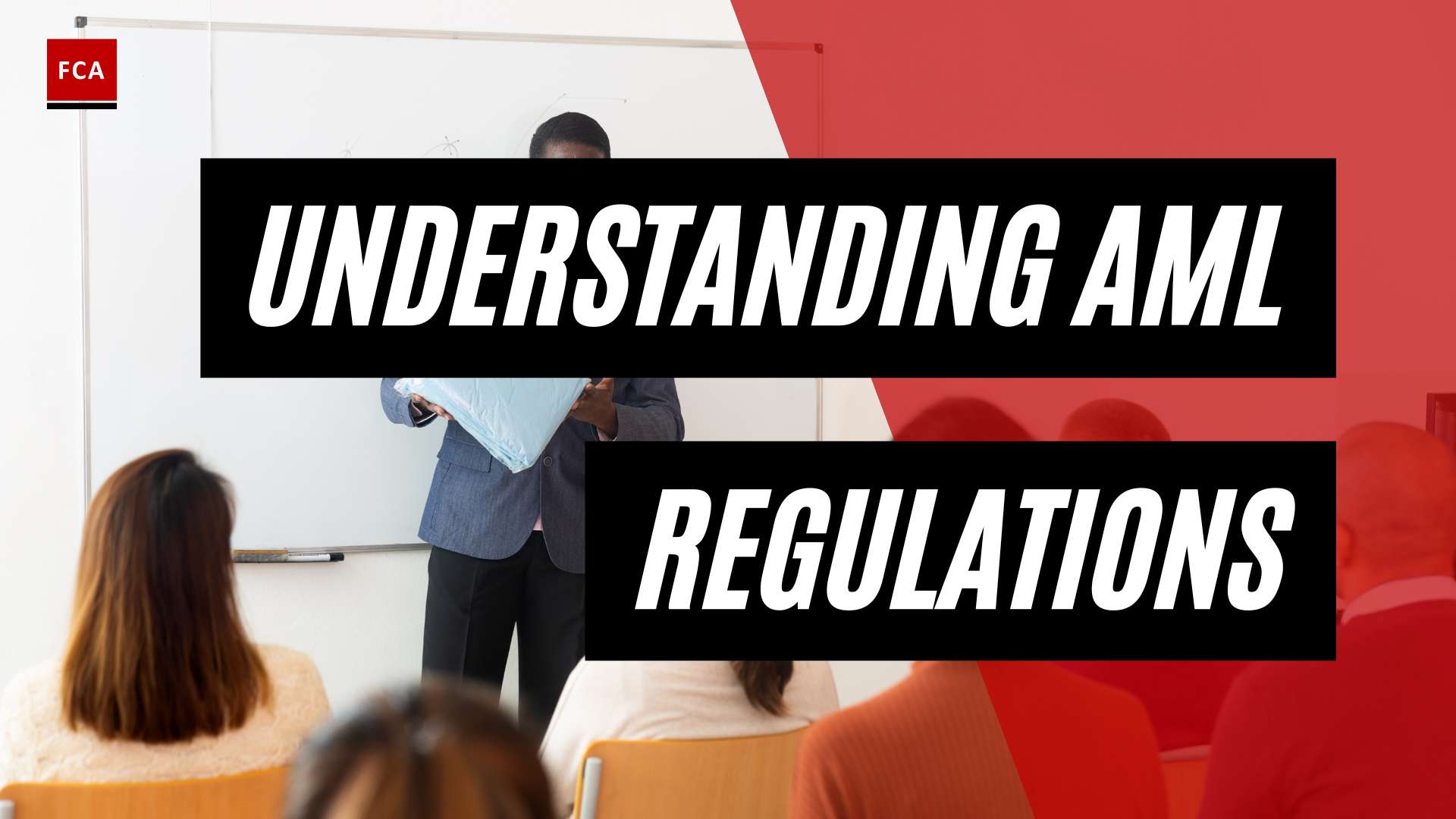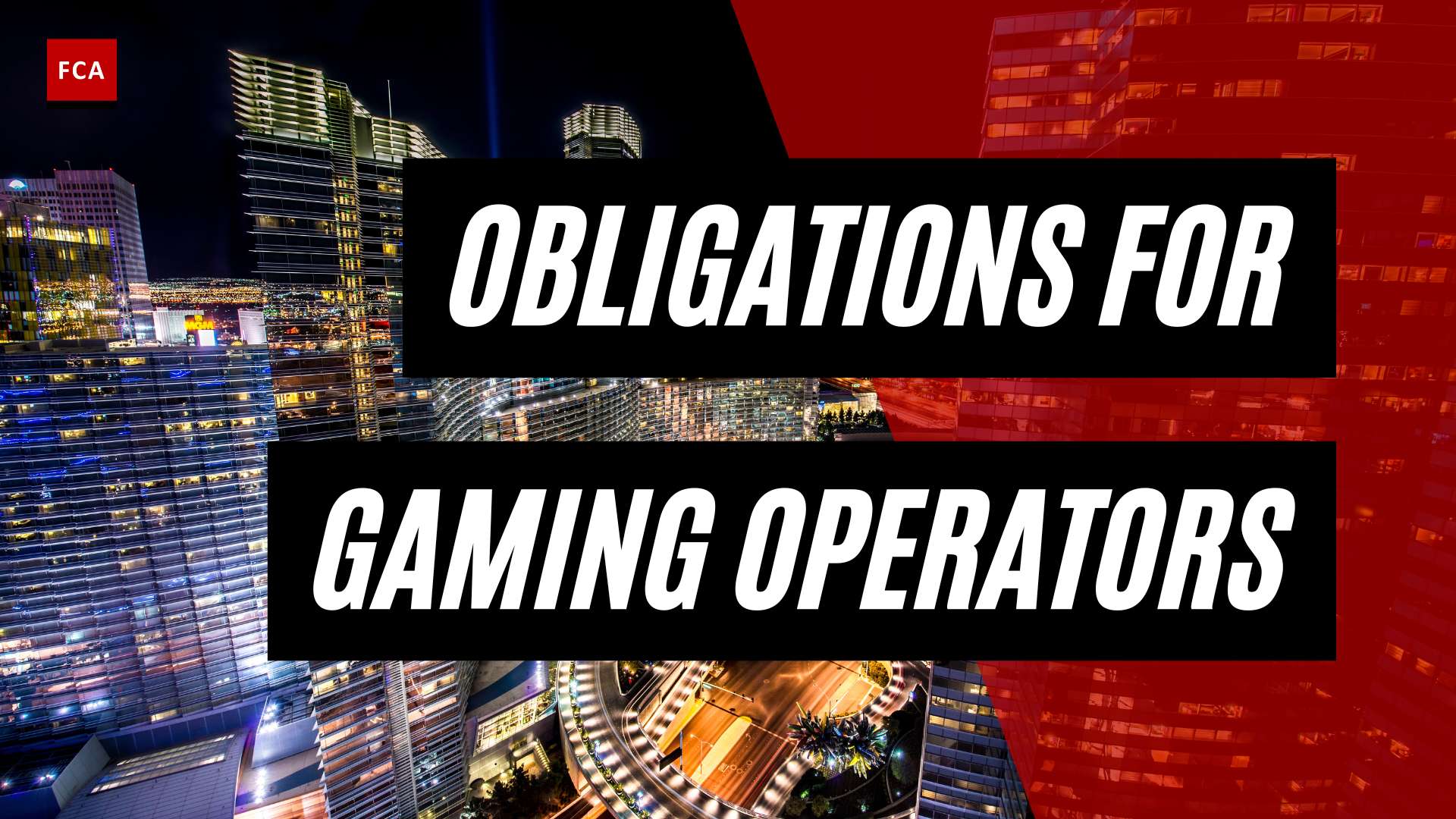Exploring AML Career Paths
When it comes to careers in Anti-Money Laundering (AML), professionals play a vital role in safeguarding the integrity of the financial system and protecting it from abuses. A career in AML offers individuals the opportunity to make a real impact and contribute to the fight against financial crimes.
Introduction to AML Careers
AML professionals are responsible for identifying and preventing money laundering, terrorist financing, and other financial crimes. They work diligently to ensure that financial institutions comply with regulatory requirements and implement effective risk identification policies.
With increased regulatory requirements and the need for financial institutions to combat money laundering and terrorist financing activities, the demand for AML professionals is on the rise. This is especially evident in the Middle East, where opportunities for AML professionals have expanded, particularly in Dubai, which hosts a significant presence of global banks (Edoxi).
Importance of AML Professionals
The role of AML professionals is of utmost importance in maintaining the integrity and stability of the financial system. By identifying and preventing money laundering and other financial crimes, they contribute to the overall security and trust within the financial industry.
AML professionals play a crucial role in ensuring compliance with regulations such as the Proceeds of Crime (Money Laundering) and Terrorist Financing Act (PCMLTFA). These regulations apply to various companies, including accounting firms, financial service institutions, government agencies, and private companies in payment and related services, including fintechs.
As the financial landscape evolves, so do the challenges posed by money laundering and other financial crimes. AML professionals are at the forefront of combating these risks and protecting the financial system from illicit activities. Their expertise and dedication contribute to maintaining the integrity and stability of financial institutions.
By pursuing a career in AML, professionals have the opportunity to make a difference and contribute to the fight against financial crimes. The AML field offers a range of career paths, each with its own unique opportunities and challenges. In the following sections, we will explore some of the specific career options, educational requirements, salary and job outlook, industries and sectors, specializations, essential skills, and resources for AML career development.
AML Career Options
For individuals interested in pursuing a career in Anti-Money Laundering (AML), there are various paths to explore. Here, we will discuss three popular AML career options: Certified Anti-Money Laundering P), AML Analyst, and AML Investigator.
Certified Anti-Money Laundering Specialist (CAMP)
The Certified Anti-Money Laundering Professional (CAMP) certification, offered by the Financial Crime Academy (FCA), is widely considered the gold standard in AML certifications. This professional credential signifies advanced training in detecting and preventing financial crime (Financial Crime Academy).
Obtaining the CAMP certification can open doors to diverse AML career paths. CAMP-certified professionals are highly sought after by employers in the financial services industry, and this certification is often a requirement for AML career advancement and job opportunities within the financial intelligence unit.
Some of the career paths that CAMP-certified professionals can pursue include:
- Bank Secrecy Act Compliance Officer
- Financial Intelligence Unit Analyst
- AML Investigator
- Compliance Officer in Banking
By obtaining the CAMP certification, professionals gain the necessary training and knowledge to excel in these roles and contribute to the fight against money laundering and financial crime.
AML Analyst
AML Analysts play a crucial role in preventing, detecting, and reporting activities related to money laundering, terrorist financing, fraud, and other financial crimes. These professionals analyze financial data and conduct investigations to identify suspicious transactions or patterns. They collaborate with other stakeholders, such as compliance officers and law enforcement agencies, to ensure regulatory compliance and mitigate risks.
AML Analysts work in a variety of industries, including banking, gaming, insurance, and more. Opportunities exist in both the public and private sectors, enabling professionals to apply their skills and knowledge in different contexts (Indeed).
To excel as an AML Analyst, individuals should possess strong analytical skills, attention to detail, and knowledge of compliance regulations. They must stay updated on evolving money laundering techniques and emerging trends in financial crime.
AML Investigator
AML Investigators play a critical role in conducting in-depth investigations into potential money laundering activities. They use various tools and techniques to identify and analyze suspicious transactions, patterns, and behaviors. AML Investigators work closely with law enforcement agencies, regulatory bodies, and internal stakeholders to gather evidence and build cases against individuals or entities involved in financial crimes.
As an AML Investigator, professionals must possess a deep understanding of money laundering methodologies, compliance regulations, and investigative techniques. They should be skilled in conducting interviews, performing research, and documenting findings. AML Investigators often collaborate with AML Analysts and other professionals to ensure effective risk mitigation and regulatory compliance.
For individuals seeking an exciting and challenging career in financial crime prevention, pursuing a career as an AML Investigator can provide valuable opportunities to make a tangible impact in the fight against money laundering.
By exploring these AML career options, individuals can choose a path that aligns with their interests, skills, and long-term goals. Pursuing certifications such as CAMP, along with gaining relevant experience and staying updated on industry trends, can unlock further career growth and advancement in the field of Anti-Money Laundering.
Educational Requirements for AML Careers
To pursue a career in Anti-Money Laundering (AML), certain educational requirements must be met. A combination of academic qualifications and professional certifications can enhance one’s prospects in the field. Let’s explore the educational requirements for AML careers.
Bachelor’s Degree in Finance, Accounting, or Related Fields
Entry-level positions in AML typically require a bachelor’s degree in finance, accounting, criminal justice, or a related field. This educational foundation provides individuals with the necessary knowledge and skills to understand financial systems, analyze transactions, and detect potential money laundering activities. A strong background in finance and accounting is particularly valuable as it helps AML professionals identify discrepancies and anomalies in financial records.
While a specific degree is not always a prerequisite, a bachelor’s degree demonstrates a level of commitment and expertise in the field. It lays a solid foundation for understanding the complexities of financial crime, compliance regulations, and risk assessment. Moreover, obtaining a bachelor’s degree in a relevant field may increase the likelihood of securing entry-level AML positions and serve as a stepping stone for career advancement.
Salary and Job Outlook in AML
When considering a career in Anti-Money Laundering (AML), it’s essential to understand the salary potential and job outlook in the field. AML professionals play a crucial role in preventing financial crimes and ensuring regulatory compliance. Let’s explore the average salaries for AML professionals and the job growth in the AML field.
Average Salaries for AML Professionals
As of October 2021, the average annual salary for entry-level AML jobs in the United States is $55,040 (ZipRecruiter). However, it’s important to note that salaries can vary based on factors such as experience, location, and job level.
For entry-level AML Analyst positions, the average salary in the United States is around $52,000 per year. According to Indeed, in 2020, the median annual wage for AML analysts was $62,100, with the highest 10% earning more than $102,000 per year (Indeed). The top five states with the highest salaries for entry-level AML positions as of October 2021 are New York, Massachusetts, Washington, New Hampshire, and Hawaii.
It’s important to note that salaries can vary based on factors such as experience, education, industry, and location. Obtaining relevant certifications, such as the Certified Anti-Money Laundering Professional certification, can also positively impact salary potential. To learn more about AML certifications, visit our article on aml certifications.
Job Growth in the AML Field
The job outlook in the AML field is promising. The demand for skilled AML professionals continues to grow as financial institutions and businesses prioritize regulatory compliance and the identification of suspicious financial activities. Job growth in the AML field is expected to increase by 8% from 2020 to 2030, which is faster than the average across all occupations (Indeed).
The increasing complexity of financial systems, advancements in technology, and the evolving nature of financial crimes contribute to the demand for AML professionals. As organizations strive to protect themselves from money laundering and terrorist financing, the need for knowledgeable and skilled AML analysts and investigators remains high.
To explore various AML career options and learn more about the responsibilities associated with each role, visit our articles on aml analyst career and aml investigator career. Keep in mind that career progression and opportunities for growth exist within the AML field, allowing professionals to advance their expertise and take on leadership roles. For more information on AML job opportunities, refer to our article on aml job opportunities.
In summary, pursuing a career in AML can offer competitive salaries and job stability. With the right qualifications, certifications, and experience, individuals can establish themselves as valuable assets in the fight against financial crimes and contribute to the integrity of the global financial system.
Industries and Sectors for AML Careers
When it comes to pursuing a career in anti-money laundering (AML), professionals have a wide range of industries and sectors to choose from. AML specialists are in demand in various sectors where financial transactions take place. Let’s explore some of the key industries and sectors where AML careers thrive.
Banking and Financial Services
The banking and financial services sector is one of the primary areas where AML professionals can find employment opportunities. Financial institutions play a crucial role in preventing, detecting, and reporting activities related to money laundering, terrorist financing, fraud, and other financial crimes. AML professionals in this sector are responsible for conducting thorough due diligence, implementing robust AML programs, and ensuring compliance with regulatory requirements. They work closely with compliance officers, AML analysts, and other stakeholders to mitigate risks and maintain the integrity of financial systems.
Insurance and Risk Management
The insurance and risk management sector also offers promising career paths for AML professionals. Insurance companies face unique risks related to money laundering and fraud, making AML specialists indispensable in identifying and mitigating potential risks. These professionals work to develop and implement AML policies and procedures tailored to the insurance industry. By conducting thorough investigations and risk assessments, they help protect insurance companies from being exploited by money launderers and fraudsters.
Consultancy and Regulatory Bodies
Consultancy firms and regulatory bodies provide another avenue for AML professionals to make an impact. In consultancy firms, AML specialists offer their expertise to clients from various industries, helping them develop effective AML strategies, policies, and procedures. They conduct risk assessments, provide training, and assist organizations in meeting regulatory requirements. Regulatory bodies, such as financial intelligence units, rely on AML professionals to develop and enforce anti-money laundering policies and regulations to safeguard the integrity of the financial system.
By exploring career opportunities in these industries and sectors, AML professionals can find diverse and fulfilling roles that align with their interests and expertise. It’s important to stay updated on industry trends, regulations, and advancements in AML technology to excel in these roles. Pursuing relevant certifications, such as AML certifications, can also enhance career prospects and open doors to more specialized positions within the field.
Remember, the demand for skilled AML professionals is growing, and the career paths within the industry offer room for growth and career progression. Embracing an AML career in banking and financial services, insurance and risk management, or consultancy and regulatory bodies can lead to rewarding opportunities to combat financial crimes and contribute to a safer financial environment.
Specializations in AML
Within the field of Anti-Money Laundering (AML), professionals have the opportunity to specialize in specific areas related to financial crime prevention. These specializations allow individuals to develop expertise in niche sectors and address the unique challenges associated with them. Three common specializations in AML are cryptocurrencies and virtual assets, cybercrime and fraud prevention, and gaming and casinos.
Cryptocurrencies and Virtual Assets
With the rise of cryptocurrencies and virtual assets, there has been an increased need for AML professionals who understand the unique risks and challenges associated with these digital currencies. Professionals specializing in cryptocurrencies and virtual assets are responsible for identifying and mitigating the potential money laundering and terrorist financing risks that arise in this rapidly evolving landscape. They stay updated on the latest trends, regulations, and technologies to ensure compliance and protect against illicit activities.
Cybercrime and Fraud Prevention
As technology advances, so does the sophistication of cybercrime and fraud. AML professionals specializing in cybercrime and fraud prevention play a crucial role in detecting and preventing financial crimes carried out through digital platforms. They focus on identifying fraudulent schemes, analyzing suspicious transactions, and implementing robust cybersecurity measures. By staying abreast of emerging cyber threats, they help organizations safeguard their financial systems and protect against money laundering activities conducted online.
Gaming and Casinos
The gaming and casino industry presents unique challenges when it comes to AML. AML professionals specializing in this area work closely with regulatory bodies and gaming establishments to combat money laundering and other financial crimes that may occur within these environments. They are responsible for implementing effective AML programs, conducting due diligence on customers and transactions, and monitoring for any suspicious activities. By understanding the specific risks associated with the gaming and casino industry, these professionals help ensure compliance and maintain the integrity of financial transactions within the sector.
By specializing in these areas, AML professionals can enhance their knowledge and skills in addressing the specific challenges and risks associated with each specialization. These specializations not only provide opportunities for professional growth and advancement but also contribute to the overall effectiveness of AML efforts in combating financial crimes.
To further explore AML career options and the various certifications available, visit our articles on AML career options and AML certifications.
Essential Skills for AML Professionals
To excel in the field of Anti-Money Laundering (AML), professionals need to possess a specific set of skills that enable them to effectively detect and prevent financial crimes. Here are three essential skills for AML professionals:
Analytical Skills and Attention to Detail
AML professionals, such as AML analysts and AML investigators, must have strong analytical skills and an acute attention to detail. They need to carefully analyze complex financial transactions and identify patterns or anomalies that may indicate money laundering or other illicit activities. This requires a keen eye for detail and the ability to connect seemingly unrelated information.
Attention to detail is crucial in AML investigations, as even the slightest discrepancies or inconsistencies can provide valuable insights into suspicious activities. AML professionals must be meticulous in their examination of financial records, regulatory requirements, and transactional data.
Knowledge of Compliance Regulations
A comprehensive understanding of AML and compliance regulations is essential for AML professionals. They need to stay up-to-date with evolving regulations and guidelines set by regulatory bodies to ensure adherence to legal and ethical standards. A solid grasp of anti-money laundering laws and regulations enables AML professionals to effectively identify and report suspicious transactions.
AML professionals should be familiar with financial products and services, as well as the various compliance frameworks applicable to their industry. This knowledge allows them to assess risks and implement effective control measures that mitigate the potential for money laundering and other financial crimes.
Communication and Collaboration Skills
Effective communication and collaboration skills are vital for AML professionals. They need to communicate complex findings and recommendations clearly and concisely to stakeholders, including senior management, law enforcement agencies, and regulatory bodies. Strong written and verbal communication skills enable AML professionals to articulate their findings in a manner that is easily understood by both technical and non-technical audiences.
Collaboration is also crucial in the AML field. AML professionals often work in multidisciplinary teams, requiring them to collaborate with colleagues from various departments, such as legal, compliance, and risk management. Collaborative skills facilitate the sharing of information, insights, and best practices, leading to more effective AML strategies and outcomes.
By honing their analytical skills, staying abreast of compliance regulations, and fostering effective communication and collaboration, AML professionals can excel in their careers and contribute to the prevention and detection of financial crimes.
For individuals looking to enter or advance in the AML field, pursuing AML certifications can enhance their knowledge and credibility. These certifications, such as the Certified Anti-Money Laundering Professional (CAMP) designation, can open doors to diverse career paths and increase earning potential in the AML field.
Resources for AML Career Development
Aspiring professionals in the field of Anti-Money Laundering (AML) can benefit from various resources that provide valuable support and guidance for career development. Here are some notable resources to explore:








